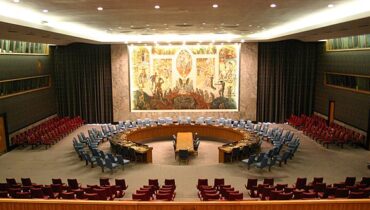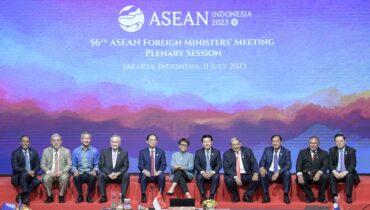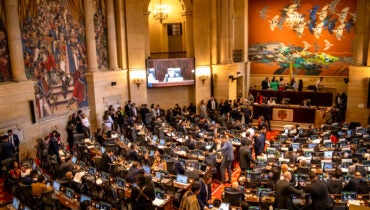A new round of negotiations between the Syrian regime and opposition groups began on January 23, 2017 in Astana, Kazakhstan, with the goal of sustaining the latest in a series of nominal ceasefires in Syria. After the fall of Aleppo to the Syrian government, it has become clear that the Assad regime holds the clear advantage in the Syrian Civil War due to crucial Russian and Iranian military support. Feeling the pressure from the Syrian regime and its allies, various armed Syrian opposition groups agreed to come to the negotiation table on Monday.
Unlike previous iterations of peace talks, there were limited groups represented in Astana. Syrian opposition to the government was represented only by the opposition’s military wing. The High Negotiations Committee, the political organization representing the Syrian opposition, has been cooperative in planning for the peace talks in Astana, but was not party to the negotiations. Also excluded from the talks was the Syrian Kurdish PYD, because Turkey, who has been instrumental in planning the negotiations along with Russia in spite of their support of conflicting proxies, refused to invite the Kurds to the table. While the United Nations led the previous rounds of negotiations in Geneva, Russia and Turkey took the lead in planning these talks that were limited in scope to the ceasefire and humanitarian aid access.
The Astana negotiations also had limited representation of women. While the exact makeup of the negotiations teams at the Astana talks was unclear, it seemed unlikely that women were adequately represented because only armed factions of the opposition were at the table. Women’s inclusion in peace talks has consistently been a challenge, across conflicts, although women’s involvement in the Colombian negotiations with the FARC has been a welcome development. In previous rounds of failed UN-led peace talks in Geneva on the Syrian Civil War, there was some progress on the inclusion of women in high-level negotiations. Just last year, the opposition and the Syrian government negotiating teams each had three female negotiators out of fifteen total negotiators. Moreover, the UN mediator Steffan de Mistura had an advisory board of twelve women, and the opposition’s negotiating team was advised by twelve women, although neither advisory board directly participated in the negotiations.
While these past talks marked progress regarding women’s inclusion in negotiations, the level of women’s participation did not fully meet the spirit of UN Resolution 1325, which states that women should be involved at all levels of the decision making process. Separate advisory committees of women, while indicating progress in women’s inclusion in high-level negotiations, are insufficient in achieving full gender integration. The fact that only twenty percent of each negotiating team was comprised of women last year is also a sign that women’s representation on these negotiating teams has much room for improvement. Without a critical mass of women participating at the highest levels of decision-making, there is the possibility that women will only serve as tokens for the negotiating parties, which has happened in various negotiations around the world. For women’s representation to have a truly meaningful impact on negotiation outcomes, women must not serve in a superficial capacity to improve the image of the negotiating parties. Instead, women must be empowered to make substantial contributions. A widely cited study conducted by the International Peace Institute demonstrates that peace agreements that included women in the negotiation process are 35% more likely to result in a lasting peace than peace agreements that excluded women in talks. Moreover, Syrian women already play key roles in their communities as activists, heads of households, and civil society organizers, and they will continue to be essential in a successful reconstruction following the end of the civil war, whenever that may be.
The Astana negotiations will hopefully serve as a precursor to a successful new round of UN-mediated talks at Geneva in February. Hind Kabawat, a member of the High Negotiations Committee, argued in an op-ed that the Astana negotiations should not be a replacement for the Geneva talks, as women and civil society organizations must be included in peace talks as they are crucial to securing a lasting peace in Syria. If all goes well, the Geneva talks that are slated to be held next month will involve more women than just three out of fifteen participants, and pave the way for an inclusive peace in Syria.
About the Author
Haydn Welch is a graduate research assistant with the Institute, and is a first year graduate student in the Arab Studies program at Georgetown. Haydn received a B.A. in Middle East studies from Swarthmore College in 2015. She studied Arabic in Amman, Jordan, where she conducted research for her undergraduate thesis on collective memory and national identity formation of Palestinian-Jordanians. At Georgetown, Haydn is developing her research in war and gender in Syria and Lebanon.


